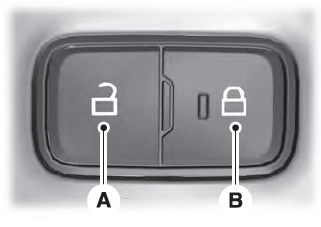Lincoln Aviator 2020-2026 Service Manual / Electrical / Climate Control System / Supplemental Climate Control / Removal and Installation - Cabin Coolant Heater
Lincoln Aviator: Supplemental Climate Control / Removal and Installation - Cabin Coolant Heater
Removal
NOTE: Removal steps in this procedure may contain installation details.
-
With the vehicle in NEUTRAL, position it on a hoist.
Refer to: Jacking and Lifting (100-02 Jacking and Lifting, Description and Operation).
-
Disconnect the batteries.
Refer to: Battery Disconnect and Connect (414-01 Battery, Mounting and Cables, General Procedures).
-
Drain the cooling system.
Refer to: Engine Cooling System Draining, Vacuum Filling and Bleeding (303-03A Engine Cooling - 3.0L EcoBoost, General Procedures).
-
Remove the front bumper cover.
Refer to: Front Bumper Cover (501-19 Bumpers, Removal and Installation).
-
-
Disconnect the electrical connectors.
-
Detach the wiring harness routing clips.
-
Remove the ground wire retainer and position aside the wiring harness.
Torque: 106 lb.in (12 Nm)
-
Disconnect the electrical connectors.
.jpg) |
-
-
Disconnect the coolant hoses.
-
Detach the coolant hose routing clips.
-
Remove the retainers and the cabin coolant heater.
Torque: 26 lb.ft (35 Nm)
-
Disconnect the coolant hoses.
.jpg) |
Installation
-
To install, reverse the removal procedure.
-
Fill and bleed the cooling system.
Refer to: Engine Cooling System Draining, Vacuum Filling and Bleeding (303-03A Engine Cooling - 3.0L EcoBoost, General Procedures).
 Description and Operation - Supplemental Climate Control - System Operation and Component Description
Description and Operation - Supplemental Climate Control - System Operation and Component Description
System Diagram
Item
Description
1
SOBDMC
2
BCMC
3
PCM
4
Cabin Coolant Heater
5
Cabin heater coolant temperature sensor
6
Cabin heater coolant pump
7
Ambient Air Temperature (AAT) sensor
8
Engine Coolant Temperature (ECT) sensor
Network Message Chart - Module Network Input Messages - SOBDMC Cabin Coolant Heater
Broadcast Message
Originating Module
Message Purpose
Engine Coolant Temperature Data
PCM
This message contains raw value from the engine coolant temperature sensor...
 Removal and Installation - Cabin Heater Coolant Diverter Valve
Removal and Installation - Cabin Heater Coolant Diverter Valve
Special Tool(s) /
General Equipment
Hose Clamp(s)
Hose Clamp Remover/Installer
Fluid Container
Removal
NOTE:
Removal steps in this procedure may contain installation details...
Other information:
Lincoln Aviator 2020-2026 Owners Manual: Moonroof (If Equipped)
WARNING: Do not leave children unattended in your vehicle and do not let them play with the moonroof. Failure to follow this instruction could result in personal injury. WARNING: When closing the moonroof, verify that it is free of obstruction and make sure that children and pets are not in the proximity of the roof opening...
Lincoln Aviator 2020-2026 Service Manual: Specifications
General Specifications Item Specification Normal engine cranking speed (Average) 140-200 RPM Starting circuit maximum voltage drop (Engine at normal operating temperature) (Average) 0...
Categories
- Manuals Home
- Lincoln Aviator Owners Manual
- Lincoln Aviator Service Manual
- Disabling Auto-Start-Stop
- Interior Lamps
- Changing the Front Wiper Blades - Vehicles With: Heated Wiper Blades
- New on site
- Most important about car
Locking and Unlocking the Doors from Inside

Locking the Doors
Press the lock switch on the door interior trim panel. The doors can no longer be released using the exterior door handle switches and the luggage compartment locks.
Copyright © 2026 www.liaviator2.com
